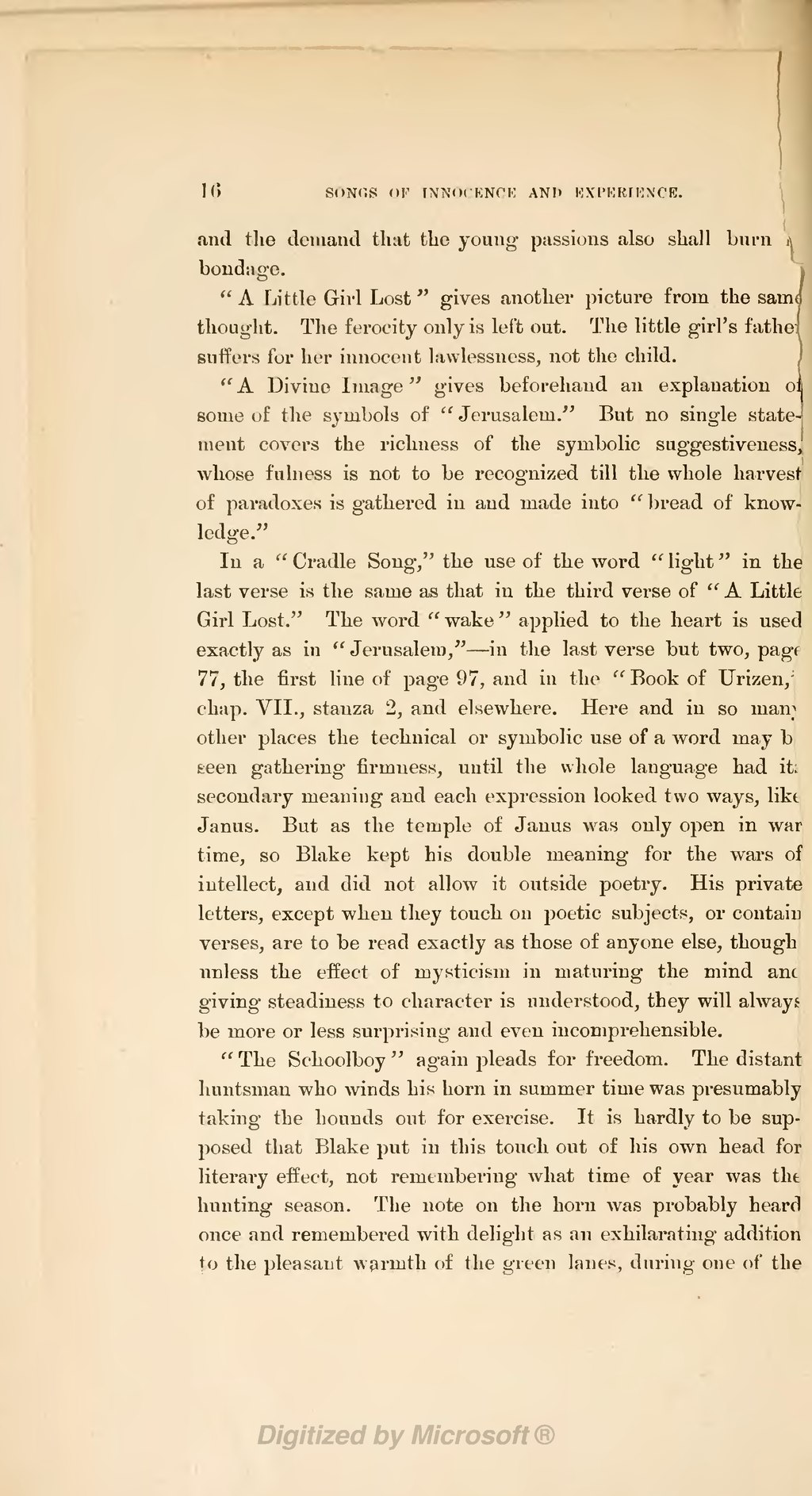and the demand that the young passions also shall burn in bondage.
"A Little Girl Lost" gives another picture from the same thought. The ferocity only is left out. The little girl's father suffers for her innocent lawlessness, not the child.
"A Divine Image" gives beforehand an explanation of some of the symbols of " Jerusalem." But no single statement covers the richness of the symbolic suggestiveness, whose fulness is not to be recognized till the whole harvest of paradoxes is gathered in and made into "bread of knowledge."
In a "Cradle Song," the use of the word "light" in the last verse is the same as that in the third verse of "A Little Girl Lost." The word "wake" applied to the heart is used exactly as in "Jerusalem," — in the last verse but two, page 77, the first line of page 97, and in the "Book of Urizen," chap. VII., stanza 2, and elsewhere. Here and in so man; other places the technical or symbolic use of a word may be seen gathering firmness, until the whole language had its secondary meaning and each expression looked two ways, like Janus. But as the temple of Janus was only open in war time, so Blake kept his double meaning for the wars of intellect, and did not allow it outside poetry. His private letters, except when they touch on poetic subjects, or contain verses, are to be read exactly as those of anyone else, though unless the effect of mysticism in maturing the mind and giving steadiness to character is understood, they will always be more or less surprising and even incomprehensible.
"The Schoolboy" again pleads for freedom. The distant huntsman who winds his horn in summer time was presumably taking the hounds out for exercise. It is hardly to be supposed that Blake put in this touch out of his own head for literary effect, not remembering what time of year was the hunting season. The note on the horn was probably heard once and remembered with delight as an exhilarating addition to the pleasant warmth of the green lanes, during one of the
